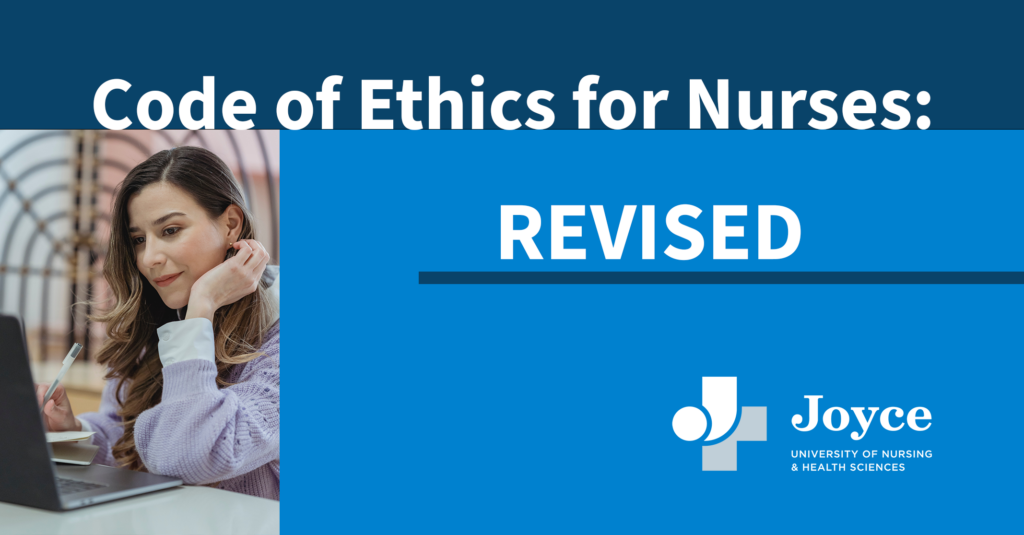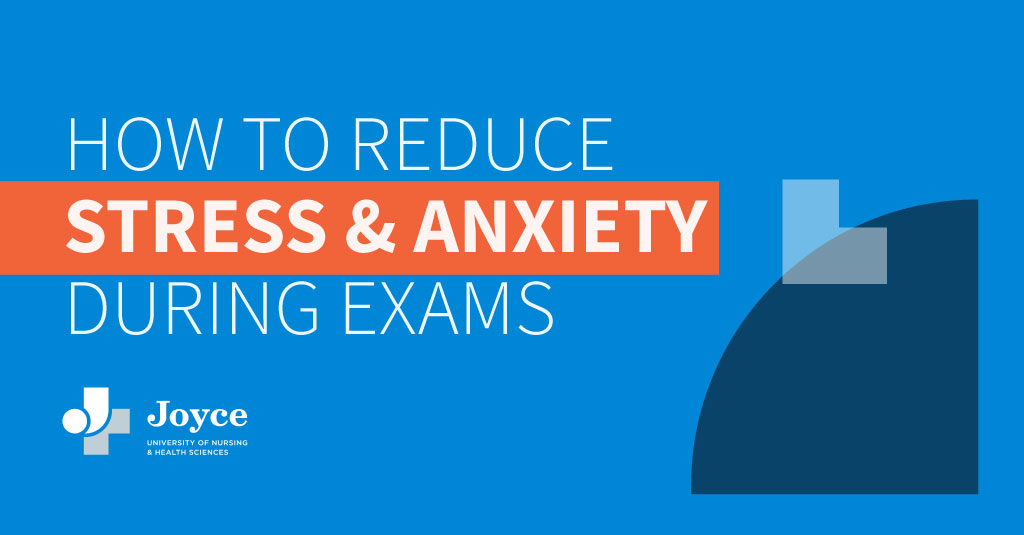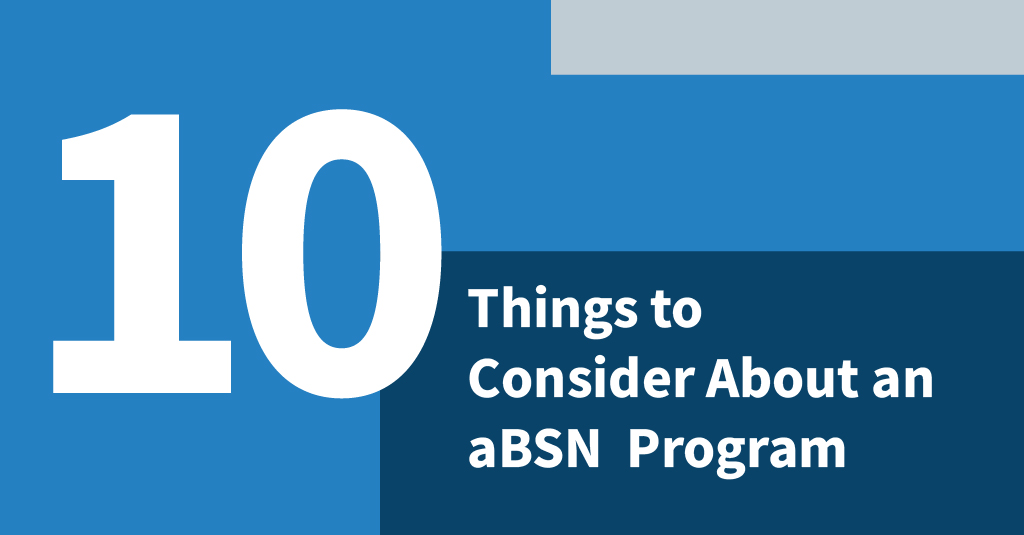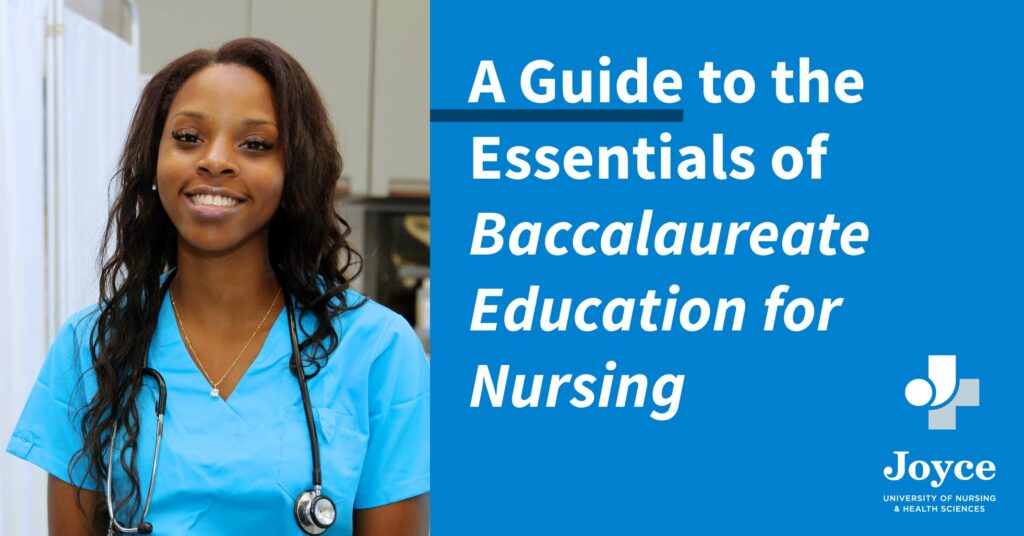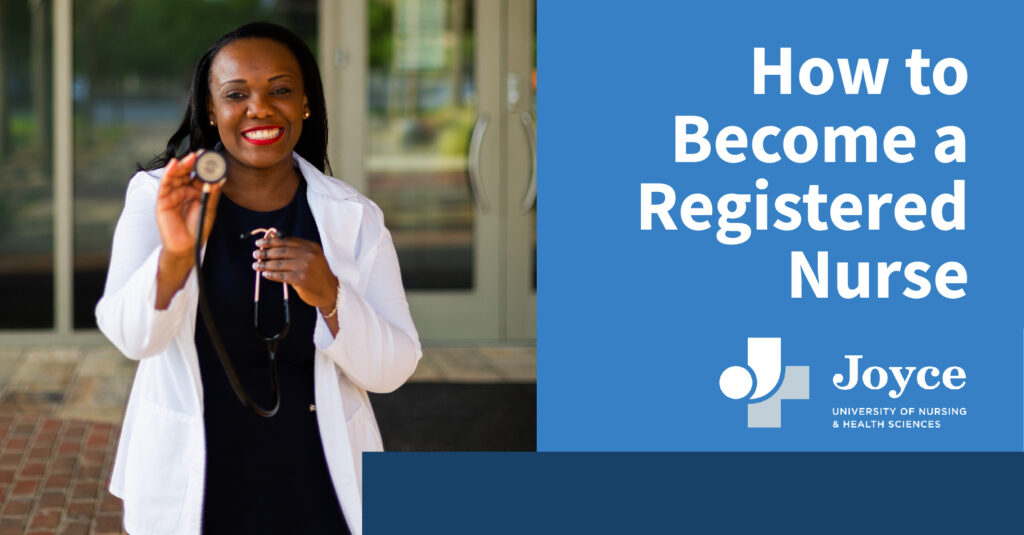Revised Code of Ethics for Nurses
Staff WriterApr 4, 2022
As individuals, and as a society as a whole, we live by a code of ethics. Some ethical codes are established by law, some are personal, and some are set by committees and professional organizations to govern the way we conduct ourselves in our work environment. Nursing is among those professions governed by a set of virtues, morals, and standards.
To ease some of the ambiguity registered nurses face daily, the first formalized code of ethics was adopted in 1950. The nursing code of ethics was created to “provide guidance on managing ethical problems that arise at the societal level, the organizational level, and the clinical level,” and remove some stress when faced with tough decisions in uncharted or gray territory. As nursing and healthcare evolve, so must its code.
A major revision took place in 2001, condensing the provisions and interpretive statements down to nine. The Code of Ethics of Nurses remains a dynamic guide, and was recently modified in 2015 to respond to the modern needs of healthcare. While the concepts remain the same, the interpretations were expanded with a new focus on leadership, social and health policy, and global health. If you haven’t already, it’s a great time to brush up on the revised code of ethics, familiarizing yourself, particularly, with the revisions. To help, we’ve highlighted a few of the important points, below.
Provision 1
2001 Revision
The nurse, in all professional relationships, practices with compassion and respect for the inherent dignity, worth, and uniqueness of every individual, unrestricted by considerations of social or economic status, personal attributes, or the nature of health problems.
2015 Revision
The nurse practices with compassion and respect for the inherent dignity, worth, and unique attributes of every person.
What Changed
The language has been simplified to reflect a core belief that all people have inherent dignity and a right to quality care.
This is one of the fundamentals of nursing: treat others as you want to be treated. Your job as a registered nurse is to provide the best care possible to each and every patient you see. In doing so, it’s imperative that you respect your patients and treat them with dignity and compassion. And remember that the same level of respect should be given to your colleagues as well!
Provision 2
2001 Revision
The nurse’s primary commitment is to the patient, whether an individual, family, group, or community.
2015 Revision
The nurse’s primary commitment is to the patient, whether an individual, family, group, community, or population.
What Changed
The word “population” has been added to emphasize the impact nurses have on a national or even global scale.
As an nurse, you won’t just be a caregiver; you’ll also act as an educator, an advocate, and a conflict resolver. One of the reasons The Future of Nursing report recommended 80% of all registered nurses have a BSN degree by 2020 is due to the growing role of nurses in global healthcare. Even in this expansive revision, Provision 2 continues to outline the importance of a nurse’s commitment to the care of the patient and his or her interests in all forms, from support to intermediary.
Provision 3
2001 Revision
The nurse promotes, advocates for, and strives to protect the health, safety, and rights of the patient.
2015 Revision
The nurse promotes, advocates for, and protects the rights, health, and safety of the patient.
What Changed
The word “strives” has been removed; the nurse must act in the best interest of the patient.
Provision 3 shapes the nurse as a safeguard for the patient. Patients have a right to confidentiality, privacy, and safe treatment. As a nurse, you’ll be responsible for keeping your patient’s information private from unauthorized personnel, prying eyes, or gossip.
Provision 4
2001 Revision
The nurse is responsible and accountable for individual nursing practice and determines the appropriate delegation of tasks consistent with the nurse’s obligation to provide optimum patient care.
2015 Revision
The nurse has authority, accountability, and responsibility for nursing practice; makes decisions; and takes action consistent with the obligation to promote health and to provide optimal care.
What Changed
Along with an emphasis on responsibility, this revision acknowledges a nurse’s authority. Nurses should have ownership of their practice.
While there will be copious resources for you while you’re working, ultimately, you’ll be responsible and accountable for the care you provide to your patients. This isn’t to say that you’re alone; if you determine that the needs of a patient are outside your scope of practice, it’s your responsibility to seek collaboration or consultation from another nurse or physician. You have authority over the care you provide, which is inspiring and empowering.
Provision 5
2001 Revision
The nurse owes the same duties to self as to others, including the responsibility to preserve integrity and safety, to maintain competence, and to continue personal and professional growth.
2015 Revision
The nurse owes the same duties to self as to others, including the responsibility to promote health and safety, preserve wholeness of character and integrity, maintain competence, and continue personal and professional growth.
What Changed
The language has changed slightly to reflect a more holistic view of nurses as a complete person ethically, professionally, and in health.
One of the things we love about nursing is the ability to continually build the skills it takes to deliver holistic, optimal care. And delivering optimal care to other people means you have to take care of one of the most important people you’ll ever take care of: yourself! This includes the obvious things like exercising, eating right, and general wellness; it also includes professional development and the right to display integrity and use moral judgement.
Provision 6
2001 Revision
The nurse participates in establishing, maintaining, and improving health care environments and conditions of employment conducive to the provision of quality health care and consistent with the values of the profession through individual and collective action.
2015 Revision
The nurse, through individual and collective effort, establishes, maintains, and improves the ethical environment of the work setting and conditions of employment that are conducive to safe, quality healthcare.
What Changed
This provision has been reworked to clearly state that a nurse should work to make the professional environment consistent with the values of quality healthcare.
Provision 6 boils to down to one statement: nurses shall do what is right. This may sound simple and intuitive to some, but it takes both individual and collective effort to create a safe environment where quality care can be practiced. In addition, nurses and healthcare workers alike must work as leaders to maintain a morally sound space and embody the characteristics and attributes (altruism, respect, kindness, among others) we think of when you say someone is a good nurse or good employee.
Provision 7
2001 Revision
The nurse participates in the advancement of the profession through contributions to practice, education, administration, and knowledge development.
2015 Revision
The nurse, in all roles and settings, advances the profession through research and scholarly inquiry, professional standards development, and the generation of both nursing and health policy.
What Changed
The language has been updated to make it clear that the responsibility to contribute to the evolution of nursing practice extends to all phases of a nursing career. From an RN sharing knowledge with peers, to a nurse educator publishing research, to an administrator shaping policy, nurses play a vital role in helping propel medicine into the future.
As we know, standards of care change. Policies change. New peer-reviewed research is published all the time. If nurses and other healthcare professions didn’t keep expanding the body of knowledge through research, scholarly inquiry, practice, and development, where would medicine be today?
Provision 8
2001 Revision
The nurse collaborates with other health professionals and the public in promoting community, national and international efforts to meet health needs.
2015 Revision
The nurse collaborates with other health professionals and the public to protect human rights, promote health diplomacy and reduce health disparities.
What Changed
Provision 8 has been reworded to focus on achieving positive health outcomes for all, regardless of socio-economic, political, or cultural factors.
Everyone, everywhere deserves quality healthcare. Nurses have a responsibility not only to the individual, but also to the community and planet as a whole. You live and breathe public health day in and day out, so you and your coworkers are some of the most qualified people to protect and promote the health of the global population, while reducing inequality. Because, after all, it takes a village to meet the health needs of the population.
Provision 9
2001 Revision
The profession of nursing, as represented by associations and their members, is responsible for articulating nursing values, for maintaining the integrity of the profession and its practice, and for shaping social policy.
2015 Revision
The profession of nursing, collectively through its professional organizations, must articulate nursing values, maintain the integrity of the profession, and integrate principles of social justice into nursing and health policy.
What Changed
Nurses must continue to play a critical role in adding an empathetic, strong voice to national and global discussions about issues of public health, human dignity, and social justice.
When you become a registered nurse, you are no longer just a singular entity, but one of many who make up the nursing profession. As one unit, the nursing profession is a powerful force that has the responsibility to maintain and communicate the values and integrity of the nursing profession and take a stand against social disparities.
The Code is a solid guide and a necessary resource for all nurses as they navigate the sometimes rough waters of patient care. And while nursing remains a complex field, this revised code of ethics reaffirms our belief that it’s one of the best professions out there.
Sources:
American Nurses Association Code of Ethics, 2001
American Nurses Association Code of Ethics for Nurses with Interpretive Statements, 2015
Nursing
Learn MoreAdmissions
AdmissionsApply Now
Request Info
